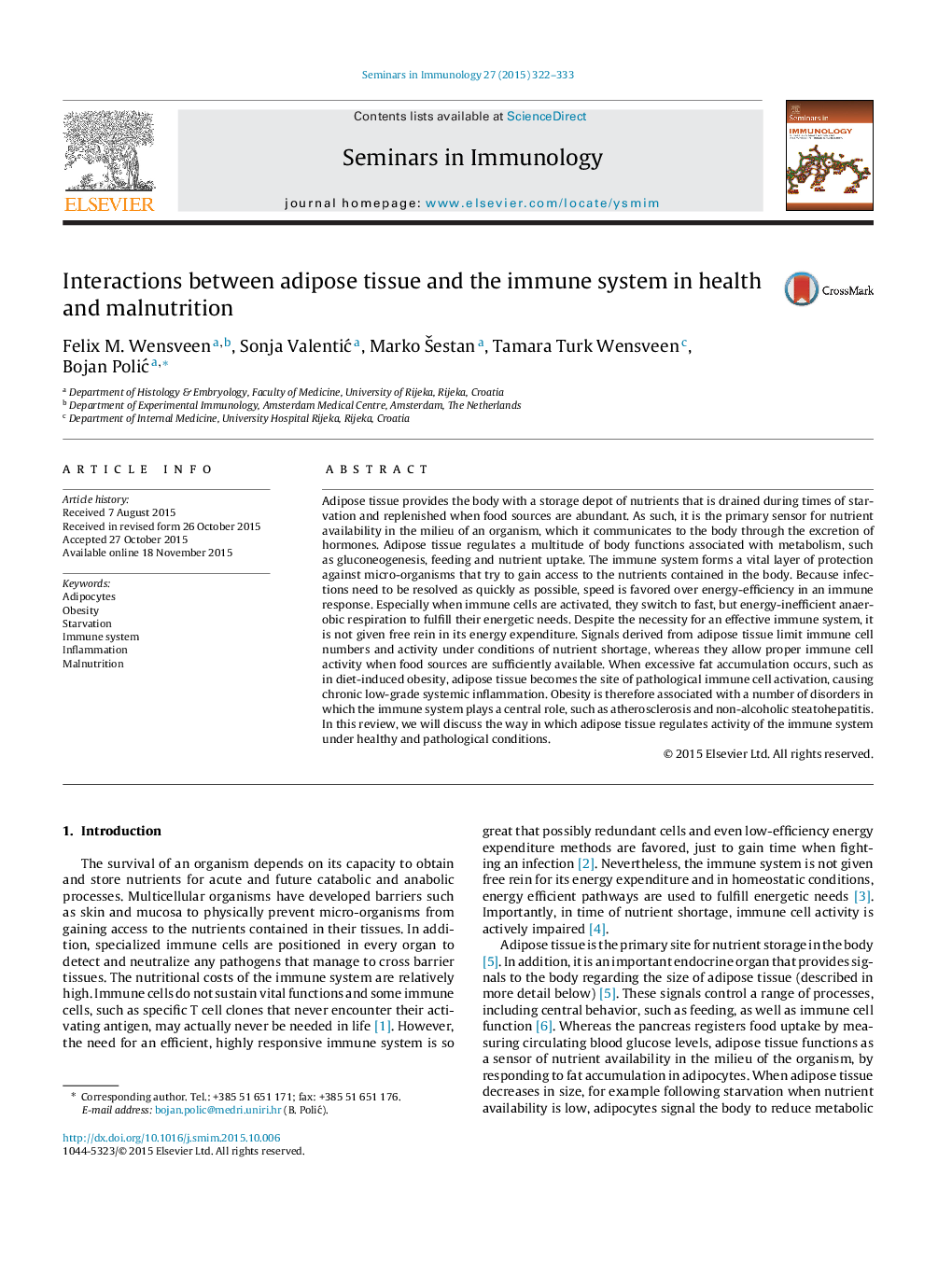| Article ID | Journal | Published Year | Pages | File Type |
|---|---|---|---|---|
| 3391346 | Seminars in Immunology | 2015 | 12 Pages |
•Adipose tissue is the primary sensor of nutrient availability in the milieu of an organism.•Adipose tissue communicates the metabolic state of the body to the immune system via hormones called adipokines, which control immune cell activity.•Under lean conditions, a proper balance between adipokines ensures sufficient immune cell responsiveness, while preventing hyper-activation.•During starvation, adipokines limit immune cell activation to reduce nutrient consumption by the immune system, which makes the body sensitive to infection.•In obesity, shifts in the adipokine balance result in a hyperactive immune system, which is associated with metabolic disorders.
Adipose tissue provides the body with a storage depot of nutrients that is drained during times of starvation and replenished when food sources are abundant. As such, it is the primary sensor for nutrient availability in the milieu of an organism, which it communicates to the body through the excretion of hormones. Adipose tissue regulates a multitude of body functions associated with metabolism, such as gluconeogenesis, feeding and nutrient uptake. The immune system forms a vital layer of protection against micro-organisms that try to gain access to the nutrients contained in the body. Because infections need to be resolved as quickly as possible, speed is favored over energy-efficiency in an immune response. Especially when immune cells are activated, they switch to fast, but energy-inefficient anaerobic respiration to fulfill their energetic needs. Despite the necessity for an effective immune system, it is not given free rein in its energy expenditure. Signals derived from adipose tissue limit immune cell numbers and activity under conditions of nutrient shortage, whereas they allow proper immune cell activity when food sources are sufficiently available. When excessive fat accumulation occurs, such as in diet-induced obesity, adipose tissue becomes the site of pathological immune cell activation, causing chronic low-grade systemic inflammation. Obesity is therefore associated with a number of disorders in which the immune system plays a central role, such as atherosclerosis and non-alcoholic steatohepatitis. In this review, we will discuss the way in which adipose tissue regulates activity of the immune system under healthy and pathological conditions.
